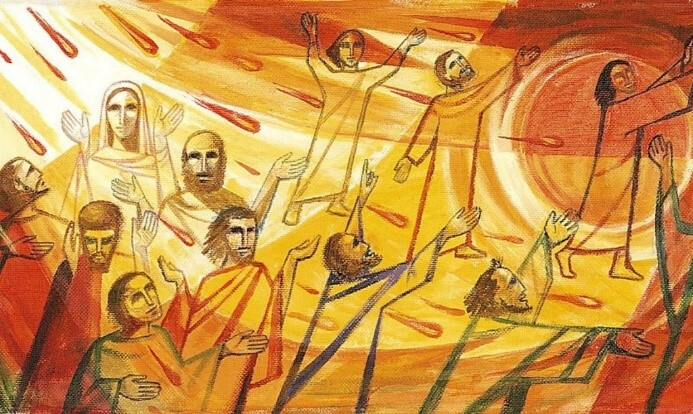Following the Lead of the Early Christians
This past Sunday, our worship focus was the early church. In the days following Jesus’ ascension into heaven, having left the disciples to continue their mission without him, the church began to grow. However, this was not because the disciples’ primary goal was to “grow the church.” Their primary goal was living a Christian lifestyle. If they were to fulfill the mission Christ gave them (to be his witnesses to the ends of the earth), what kinds of things would they need to be doing in order for that happen? That was the question before them. Those early Christians settled on five – 5 spiritual practices – as the answer to that question:
The Apostles’ Teaching (the Word of God)
Fellowship (coming together and gathering together)
Breaking Bread (sharing meals)
Prayer
Generosity
Our most recent sermon series, which concluded this past Sunday, was based on the Strategic Plan the council is considering adopting to guide our ministry over the next 3-5 years. The plan happens to have four (4) focus areas – Neighborhood; Faithful families; Organization; and Generosity. As I was preparing the sermon for October 3, and as I read over those 5 spiritual practices from Acts 2, I was struck by how closely they align with our 4 focus areas.
The Apostles’ Teaching refers to how the early Christians devoted themselves to the Word of God as communicated by Jesus. Our focus on Faithful Families is designed (among other things) to encourage greater participation in activities and programs that help us grow in our biblical knowledge and understanding.
Fellowship refers to how the early Christians overcame regional and individual differences to come together in faith. Our focus on the Neighborhood hopes to reveal how, through faith, earthly differences and distinctions can be transcended.
Overall, these 5 practices of the early church were an intentional way of giving organization to a movement that was becoming “the church.” They helped turn an otherwise disparate 3,000-plus group of people into the organization we know today as the church. Our focus on Organization similarly asks us to think intentionally about the best way to organize the church in our day and age, just as our ancestors did in theirs.
Finally, the early Christians made in incredibly lasting impact on the world because of their way of generous living. Similarly, our focus on Generosity asks us to consider what kind of impact we might make on the world today. Granted, our impact will invariably pale in comparison to that of the earliest disciples. But like theirs, we hope ours is lasting.
Whether or not the Council approves this Strategic Plan, I hope you have enjoyed this recent series – not only each of the individual Sunday messages and biblical passages on which they were based, but also thinking about how these scriptures speak to our life as a church today. Moreover, these kinds of things – striving to be good neighbors; supporting families and growing in our biblical knowledge; being intentional about how we are organized; and how we are generous will always remain as important things for us to consider.
Blessings, Michael


